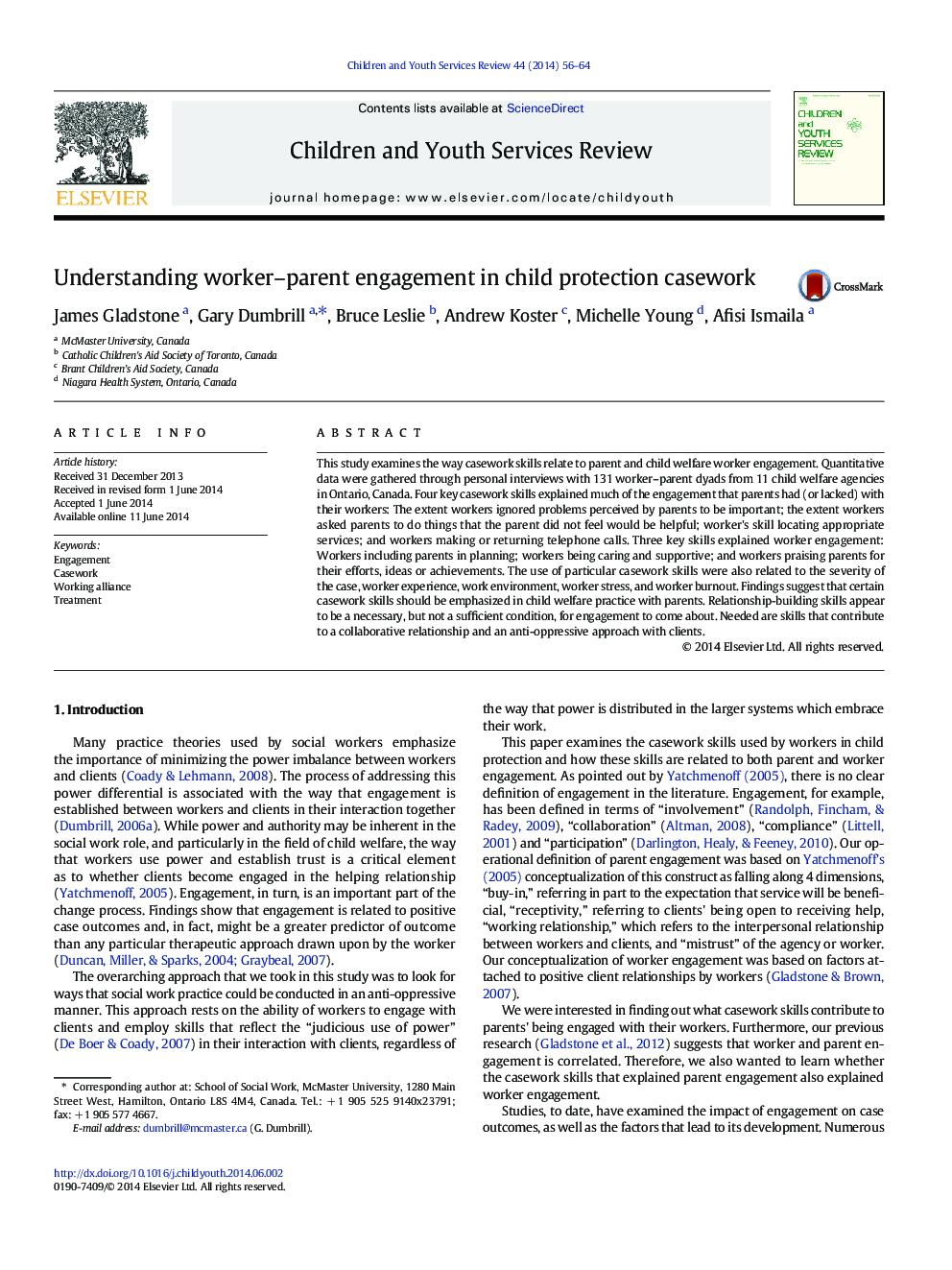| Article ID | Journal | Published Year | Pages | File Type |
|---|---|---|---|---|
| 6834207 | Children and Youth Services Review | 2014 | 9 Pages |
Abstract
This study examines the way casework skills relate to parent and child welfare worker engagement. Quantitative data were gathered through personal interviews with 131 worker-parent dyads from 11 child welfare agencies in Ontario, Canada. Four key casework skills explained much of the engagement that parents had (or lacked) with their workers: The extent workers ignored problems perceived by parents to be important; the extent workers asked parents to do things that the parent did not feel would be helpful; worker's skill locating appropriate services; and workers making or returning telephone calls. Three key skills explained worker engagement: Workers including parents in planning; workers being caring and supportive; and workers praising parents for their efforts, ideas or achievements. The use of particular casework skills were also related to the severity of the case, worker experience, work environment, worker stress, and worker burnout. Findings suggest that certain casework skills should be emphasized in child welfare practice with parents. Relationship-building skills appear to be a necessary, but not a sufficient condition, for engagement to come about. Needed are skills that contribute to a collaborative relationship and an anti-oppressive approach with clients.
Related Topics
Health Sciences
Medicine and Dentistry
Perinatology, Pediatrics and Child Health
Authors
James Gladstone, Gary Dumbrill, Bruce Leslie, Andrew Koster, Michelle Young, Afisi Ismaila,
